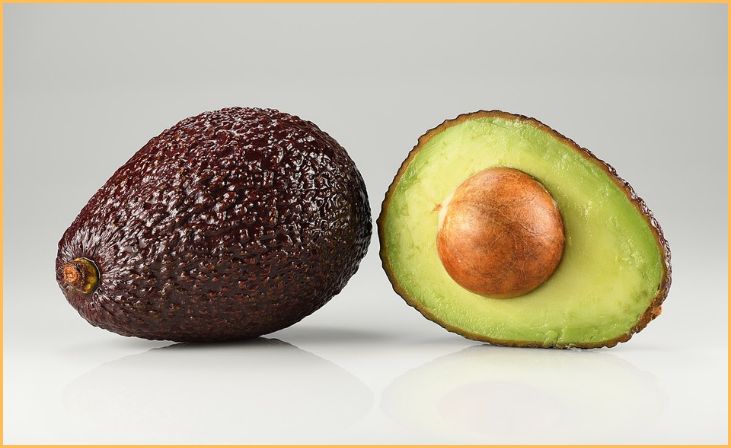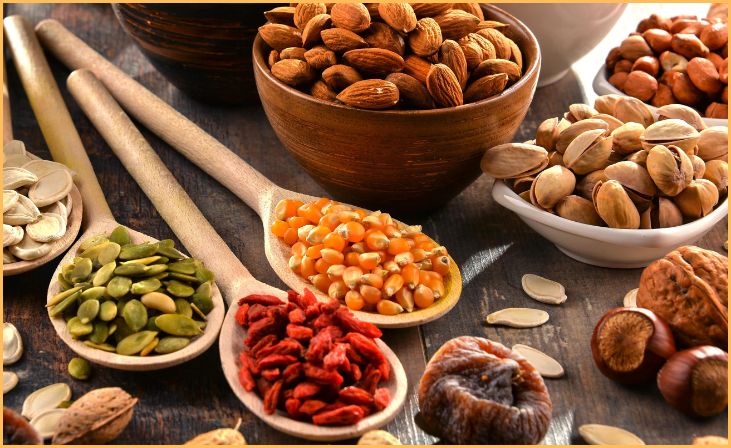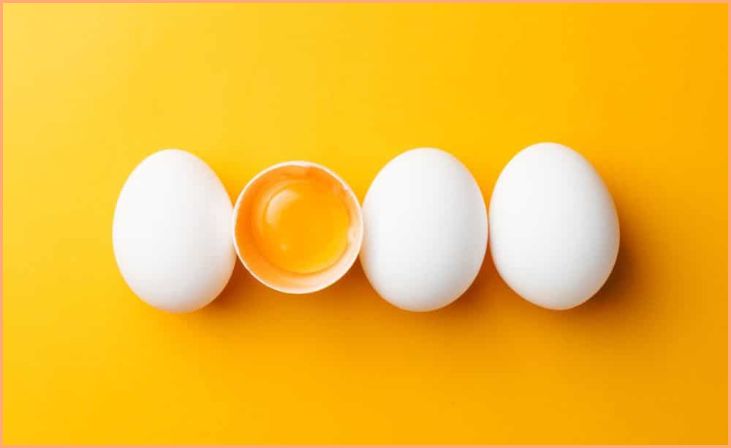Embarking on a journey towards a healthier lifestyle and successful weight loss necessitates a profound comprehension of the role that fats play in our overall well-being. Despite prevailing misconceptions, it is essential to recognize that not all fats are detrimental to our health. This article delves into the critical importance of integrating the appropriate types of fats into your daily diet, emphasizing their positive impact on both weight loss and general wellness.
In a world where dietary fads often villainize fats as the culprits behind weight gain and health issues, it is imperative to debunk this myth. Fats are an integral component of a balanced diet and serve various essential functions within the body. Understanding the distinction between healthy and unhealthy fats is key to optimizing their benefits for weight management.
The 7 Best Healthy Fats For Weight Loss
Avocado

Avocado, often referred to as nature’s butter, is a nutrient-dense fruit celebrated for its wealth of monounsaturated fats. These heart-healthy fats are not only essential for cardiovascular health but also play a pivotal role in weight management. The oleic acid in avocados has been linked to reduced inflammation and improved metabolism. Moreover, avocados boast a substantial fiber content, promoting satiety and controlling appetite. This dual-action of healthy fats and fiber makes avocados an excellent addition to your weight loss journey.
Also Read:- Best Weight Loss Drinks
Olive Oil
Extra virgin olive oil, a cornerstone of the Mediterranean diet, stands out for its high monounsaturated fat content and potent antioxidant properties. This culinary gem is not only a flavorful addition to dishes but also a powerful ally in weight loss. Monounsaturated fats help regulate blood sugar levels, preventing energy crashes that can lead to unhealthy food choices. The antioxidants in olive oil combat oxidative stress, supporting overall health during weight loss efforts. Drizzling this liquid gold over salads or using it for cooking can elevate both the taste and nutritional profile of your meals.
Salmon
Salmon, a fatty fish teeming with omega-3 fatty acids, deserves a prominent place in any weight-conscious diet. Omega-3s are renowned for their anti-inflammatory effects, contributing to a healthy metabolism and improved insulin sensitivity. These fatty acids also play a crucial role in regulating hormones related to appetite and satiety. Including salmon in your meals not only aids in weight loss but also promotes cardiovascular health, making it a versatile and nutritious choice for those aiming to shed pounds.
Nuts and Seeds

Almonds, walnuts, chia seeds, and flaxseeds are nutritional powerhouses, packed with healthy fats, fiber, and a plethora of essential nutrients. The combination of monounsaturated fats and fiber in nuts and seeds makes them a satiating snack that helps curb cravings and keeps you feeling full for longer periods. The omega-3 fatty acids in walnuts and flaxseeds further contribute to their weight loss benefits by supporting metabolic function and reducing inflammation. Incorporating these nutrient-rich foods into your diet not only aids in weight management but also provides a convenient and tasty way to meet your daily nutritional requirements.
Coconut Oil
Despite its saturated fat content, coconut oil has gained popularity for its unique composition of medium-chain triglycerides (MCTs). These fats are metabolized differently than long-chain fatty acids, offering a quick source of energy and potentially boosting metabolism. While moderation is key due to its calorie density, incorporating coconut oil into your diet can support weight loss efforts. Additionally, the lauric acid in coconut oil has antimicrobial properties, contributing to overall immune health. Whether used in cooking or added to smoothies, coconut oil provides a flavorful and versatile option for those seeking the benefits of healthy fats.
Dark Chocolate
Dark chocolate with a high cocoa content not only satisfies sweet cravings but also delivers a dose of monounsaturated fats. Beyond its delightful taste, dark chocolate contains antioxidants, such as flavonoids, which have been associated with various health benefits. The moderate consumption of dark chocolate can contribute to weight loss by promoting a sense of satisfaction and potentially reducing the desire for less healthy treats. Additionally, dark chocolate has been linked to improved mood and cognitive function, offering a holistic approach to well-being during the weight loss journey. Selecting chocolate with at least 70% cocoa ensures maximum nutritional benefits with minimal added sugars.
Also Read:- Effective Exercises For Weight Loss
Eggs

Eggs, often considered a nutritional powerhouse, provide a rich source of healthy fats and essential nutrients. The yolk, in particular, contains monounsaturated fats along with vitamins A, D, and E. Including eggs in your diet not only supports muscle maintenance during weight loss but also contributes to a feeling of fullness due to their protein content. Contrary to past concerns about cholesterol, research has shown that moderate egg consumption does not adversely affect heart health and can be part of a balanced diet. Whether enjoyed as part of a savory omelet or a simple boiled egg snack, incorporating eggs into your meals adds a nutrient-dense and satiating element to your weight loss strategy.
Conclusion
To sum it up, adopting the inclusion of the appropriate fats in your dietary choices can truly revolutionize your weight loss journey. Integrating these healthful fats into your daily meals is not just about shedding those excess pounds; it’s a holistic endeavor that nurtures your body with essential nutrients.
As you embark on this venture, the emphasis is not solely on shedding weight but on doing so in a manner that supports your overall well-being. The seven best healthy fats, carefully selected for their nutritional richness and weight loss benefits, present a diverse and delectable approach to reaching your weight loss objectives.
FAQs
A. No, not all fats are detrimental to weight loss. In fact, incorporating healthy fats into your diet can support weight loss by promoting satiety and providing essential nutrients.
A. An Although the recommended daily consumption of healthy fats varies, it usually ranges from 20 to 35 percent of total calories. For individualized advice, it’s best to speak with a nutritionist or medical expert.







